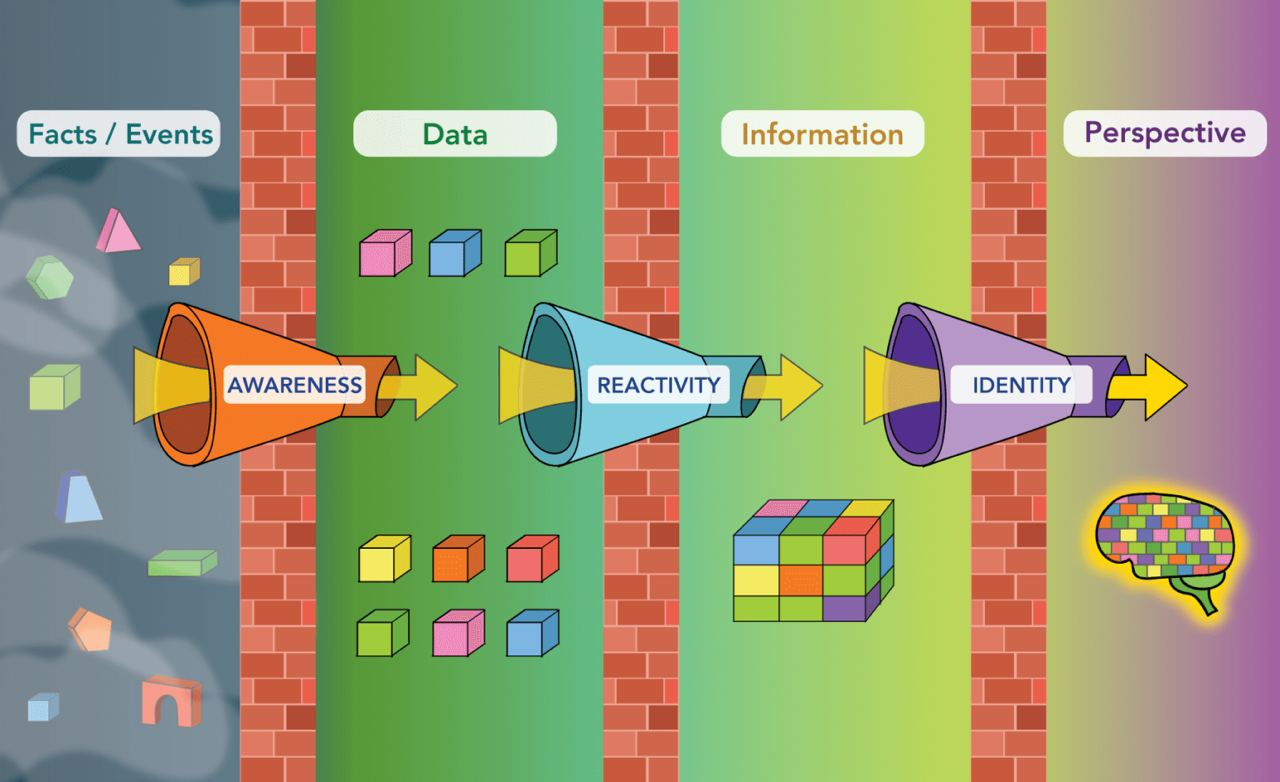More to That - Literature Notes
# Notes
#literaturenotes See Sources/More to That - Blog
# The Information Lifecycle: How Three Filters Shape the Mind
#information #cognition
- Cards/Attention is a zero-sum game.
- Information abundance simply means we have infinite opportunities to react to data.
Whenever we point to “information abundance,” what we are really saying is that we have ==“endless opportunities to react to data.”==
- The process of unknown facts becoming perspective-changing beliefs is known as the ==information lifecycle==.

- The first filter of this is ==awareness==.
- This is governed by ==curiousity==. Without it, we remain closed to facts in the first place.
Without cultivating curiosity, the awareness filter remains closed to any facts in the first place.
- There are ==shades== to this curiousity; we can go from having tunnel vision to being too open.
- The next filter is ==reactivity==.
- This processes ==data as information==.
- Usable knowledge
- One can adjust this filter through the strength of their ==cognitive capabilities==.
- Instead of curiousity, processing information requires ==diligence==.
- This processes ==data as information==.
Whatever passes through becomes data, but in order for that to be processed as information, it must pass through the filter of reactivity.
What allows one to adjust the filter of reactivity is the strength of their capabilities. Data becomes information only when you have the cognitive capacity to interpret it as such.
Interpreting information has less to do with curiosity, and more to do with ==diligence.== Curiosity was the force that brought me to the book, but diligence is what will make that book a useful source of knowledge.
- The final filter is ==identity==.
- This gives you the option to incorporate it into our worldview, composed of ==beliefs, ideas, and truths.==
- Cards/Identity isn’t constructed independently; it’s always constructed in relationship to something else that exists alongside you.
- Our identities bring together those who are ==similar,== but break apart those who are ==different.==
Once that information is processed, we then have the option to incorporate it into our worldview, or discard it altogether. This is decided by the final bottleneck: ==the filter of identity.==
Identity is the collection of beliefs, ideas, and truths you hold to position yourself within the world. No matter how independent you think you are, identity is ==always constructed in relationship to something else that exists alongside you.==
Identities organize the familiar, but divide the unfamiliar. ==The more we love the idea of “us,” the more we hate the idea of “them.”==
- We can avoid this division among ourselves by ==freeing ourselves from the notion of identity.==
- Cards/Freedom from conditioning: letting go of all of ==society’s influences== that have forced us into certain roles (e.g. gender stereotypes)
Krishnamurti calls this “freedom from conditioning,” where we are able to let go of all the societal influences that have shaped and categorized us into certain roles.
- If we rely less on our identities for processing information, we can ==learn more about the world and our place in it.==
- We need to be curious in order to open our awareness to facts.
- We need to update our capabilities in order to process data into information.
- We need to let go of identity in order to build on our perspectives.
The less we need to rely on our identities to make sense of information, ==the more we can learn about the world, and uncover our true place within it.==
Without cultivating curiosity, the awareness filter remains closed to any facts in the first place.
Without updating our capabilities, we can’t react to whatever data we discover.
And without letting go of identity, no amount of information will ever shift our perspective.